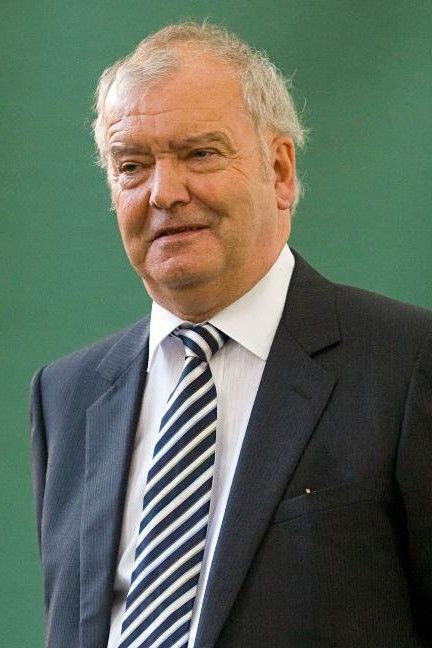2020
Our President in 2020/1 was:
Sir Tom Devine
He proposed the Toast to Sir Walter at our 111th Annual Dinner on 2nd September 2021* at The New Club, Edinburgh
(*rescheduled from the 6th May due to the ongoing pandemic)
Download the [transcript]
Summary of the Speech:
Sir Tom Devine talked about Sir Walter Scott's profound cultural and national influence, particularly within Scotland. He argued that Scott played a critical role in preserving Scottish identity during a period of significant transformation and potential cultural dissolution in the late 18th and early 19th centuries. This was followed by reflections on Edinburgh's civic and intellectual legacy, its Enlightenment achievements, and its architectural homage to Scott.
Highlights & Key Points
- Scott’s Legacy: At his death in 1832, Scott was the most widely read novelist globally. His work shaped international views of Scotland.
- Scott as Cultural Anchor: Devine explained that Scott’s imaginative engagement with Scotland’s past provided vital “sheet anchors” during a national identity crisis.
- Historical Context:
- Post-Union (1707), Scotland faced fears of cultural assimilation.
- The industrial and agricultural revolutions rapidly transformed the nation.
- Identity was threatened by Anglicisation and the new Britishness forged through repeated wars with France.
- Scott’s Role:
- Not a lone figure, but a central one in healing the rift between Scotland’s past and present.
- More influential in conveying Scottish historical memory than the universities of the time.
- Romanticised the Highlands, turning them from a symbol of rebellion to a national emblem.
- Created a hybrid cultural nationalism—distinctively Scottish, yet unthreatening to political unionism.
- His use of Highland dress and myth forged a non-political, emotional national identity.
- Sartorial Nationalism: Highland dress became a symbol of Scottishness without political risk, partly thanks to Scott’s orchestration of George IV’s 1822 visit.
Interesting Points Worth Noting
- Scott's International Reach: Over 3,000 non-English translations and references to his work exist in the National Library of Scotland’s database.
- Cultural Hybridity: The lecture skilfully explored how Scottishness and Britishness coexisted—Scott enabled a cultural identity that thrived within a political union.
- Recasting the Highlands: Scott’s reinterpretation of the Highlands as noble and romantic helped rehabilitate a previously marginalised part of Scotland’s culture.
- Use of Ernest Renan’s Ideas: Devine grounded his thesis in Renan’s 1882 notion that nations are built on collective memory, not ethnicity or geography.
- Architectural Legacy: The spread of Scots Baronial architecture (even to Australia) is part of Scott's imaginative legacy.
Download the [transcript]
List of Members Present
On Thursday 2nd September 2021, the Annual Dinner of the Club took place in the New Club, Edinburgh. Prof. Murray Pittock presided over a company of 50+ members: Here are the names separated by commas:
William Agnew, Dr. Patricia Andrews, Çiğdem Balim, Astrid Balodis, Iain G. Brown, Simon Burton, Lady Caplan, Ian Chisholm, Alan Cran, Ian Davitt, Sir Tom Devine, Jane Ferrier, Prof. Penny Fielding, Louise Gardiner, Brigadier Ian Gardiner, Gillian Garside, Professor Peter Garside, Kath Hardie, Anne Irons, Norman Irons, Prof. Catherine Jones, Stuart Leckie, Hugh Lockhart, Pippa Lockhart, Lady Lucinda Mackay, Madeleine MacKenzie, Very Rev. Allan MacLean of Dochgarroch, Helen MacPherson, David McClay, Anna Millar, Nan Mitchell, Tom Murison, Stephen O'Rourke, Dr. Anne Pittock, Hugh Salvesen, Astrid Silins, Lee Simpson, Anthea Sinclair, Cllr Peter Smaill, William Staempfli, Rhoddie Stewart-Meiklejohn, Krystyna Szumelukowa, Lady Torrance, Very Rev Prof. Iain R. Torrance, Michael Turpie, Eric Wishart, Dr. Michael Wood, Dr. Lucy Wood, Irene Young, Hugh Andrew.

Professor Emeritus Sir Tom Devine Kt OBE DLitt HonDLitt HonDUniv FRHistS FSA(Scot) HonMRIA FRSE FBA.
Tom Devine is Sir William Fraser Professor of Scottish History and Palaeography Emeritus in the University of Edinburgh,the world’s oldest and most prestigious Chair in the field of Scottish Historical Studies. He was previously Professor of Scottish History at Strathclyde, where he also became Deputy Principal, and then the Glucksman Research Professor of Irish and Scottish Studies and Founding Director of the Research Institute of Irish and Scottish Studies at Aberdeen. During his career he has held several visiting appointments in Canada, France, New Zealand and the USA.
He is the author or editor of some forty books on Scottish history, Irish-Scottish studies, diaspora, empire and contemporary political and social issues. One of his books, The Scottish Nation, has sold 100,000 copies in the UK alone. His most recent volume, The Scottish Clearances: A History of the Dispossessed 1600-1900, has been described as a historical masterpiece by reviewers.
Devine has received many awards, prizes and honorary degrees throughout his career. These include the Royal Medal of the Royal Society of Edinburgh, Scotland’s supreme academic accolade; knighted by HM The Queen in 2015 ‘for services to the study of Scottish history', the first scholar to be so honoured for that reason; and the Lifetime Achievement Award of the All Party Group on History and Archives (Commons and Lords) of the UK Parliament for his distinguished contributions to historical research.
The Times stated that Tom Devine ‘is as close to a national bard as the nation has’, while Scottish Field described him as ‘the rock star of Caledonian historians’. This last was greeted by Lady Devine, his four children and nine grand children with unbridled amusement.
Image provided by Sir Tom Devine


